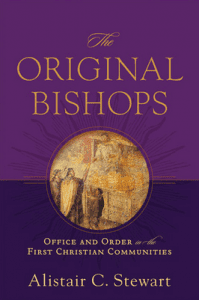 It is not uncommon to wonder if the apostle Paul somehow dropped the concern of Jesus with economic justice. Let’s begin with the Magnificat of Mary in Luke 1:46-55, where we hear her concerns with justice for the poor:
It is not uncommon to wonder if the apostle Paul somehow dropped the concern of Jesus with economic justice. Let’s begin with the Magnificat of Mary in Luke 1:46-55, where we hear her concerns with justice for the poor:
for he has been mindful of the humble [poor] state of his servant (48).
He has brought down rulers from their thrones but has lifted up the humble [poor](52).
He has filled the hungry with good things but has sent the rich away empty (53).
Then we get to John the Baptist, in Luke 3:10-14:
Luke 3:10 “What should we do then?” the crowd asked.
Luke 3:11 John answered, “Anyone who has two shirts should share with the one who has none, and anyone who has food should do the same.”
Luke 3:12 Even tax collectors came to be baptized. “Teacher,” they asked, “what should we do?”
Luke 3:13 “Don’t collect any more than you are required to,” he told them.
Luke 3:14 Then some soldiers asked him, “And what should we do?”
He replied, “Don’t extort money and don’t accuse people falsely—be content with your pay.”
Mary and John clearly envision a messianic kingdom marked by economic justice; in fact, one where the poor especially will experience social reversal.
Then along comes Jesus in Luke 4:18-19, where Jesus establishes his missional orientation as shaped by Isa 61 and God’s establishment of justice:
the Spirit of the Lord is upon me,
because the Lord has anointed me.
He has sent me to preach good news to the poor,
to proclaim release to the prisoners
and recovery of sight to the blind,
to liberate the oppressed,
and to proclaim the year of the Lord’s favor.
Jesus opens the sermon on the plain in Luke 6 by blessing the poor and cursing the rich. Economic justice indeed. Jesus’ ministry frequently incorporated the poor into table fellowship. Enough of this.
The issue is What happened to this with Paul? Did he drop economic justice? Did his mission into the Roman empire somehow change the focus? Two observations, one brought home to me just recently in a very fine book.
First, 2 Cor 8–9 shows that Paul’s mission included a financial concern for the poor and I take the view that these two chps concern the poor of Jerusalem, perhaps the poor saints of Jerusalem, and surely there is something here about economic justice. But truth be told, there’s not the focus in Paul that we saw in Jesus.
Or is this right?
In his new, weighty and fully supported, erudite, in-house academic study, Alistair Stewart contends that the bishop of the Pauline churches was the economic minister of the congregation or community. His book is called The Original Bishops: Office and Order in the First Christian Communities (BakerAcademic, 2014).
The standard view, repeated all over the library, is that elders and bishops were more or less the same office in the churches. He contends there was bishop or episcopal leadership from the outset. Elders and bishops, in other words, were not the same thing. He discusses all the NT and early Christian evidence.
Here is his overall set of theses:
elders (presbyters), who were not shaped by synagogue leaders, were the elder males of local fellowships who represented individual congregations in city-wide councils;
the bishop, a term that constantly means financial overseer in the Greek-speaking world, refers to a local church pastor but was also the one in charge of almsgiving and financial matters and esp providing for common meals and fellowship;
there was never more than one bishop per congregation;
in the federation of churches in a city there was likely more than one bishop per city;
the representative elders may well have been local bishops but that does not make them the same thing;
and over time the “bishop” became the administrative church leader of a collection or federation of churches in a city.
He does not see plural elders leading a local fellowship as ministers evident in either the NT or early Christian evidence.
The deacons (diakonoi) were also economic stewards of the bishops (episkopoi). The churches were led by bishops and deacons.
The single or monepiscopacy emerged from the federation of churches and bishops and presbyters who represented various congregations in cities.
You can see how he reads Phil 1:1: “To all God’s holy people in Christ Jesus at Philippi, together with the overseers and deacons.”
Point now: from the beginning, economic justice was part and parcel of the early Pauline churches in the office or person or function of the “bishop.” So central was economic justice to Pauline churches that the leader of the churches was one who administered finances. (Mercy, what this might mean about local pastors today running the money — that’s another issue.)











